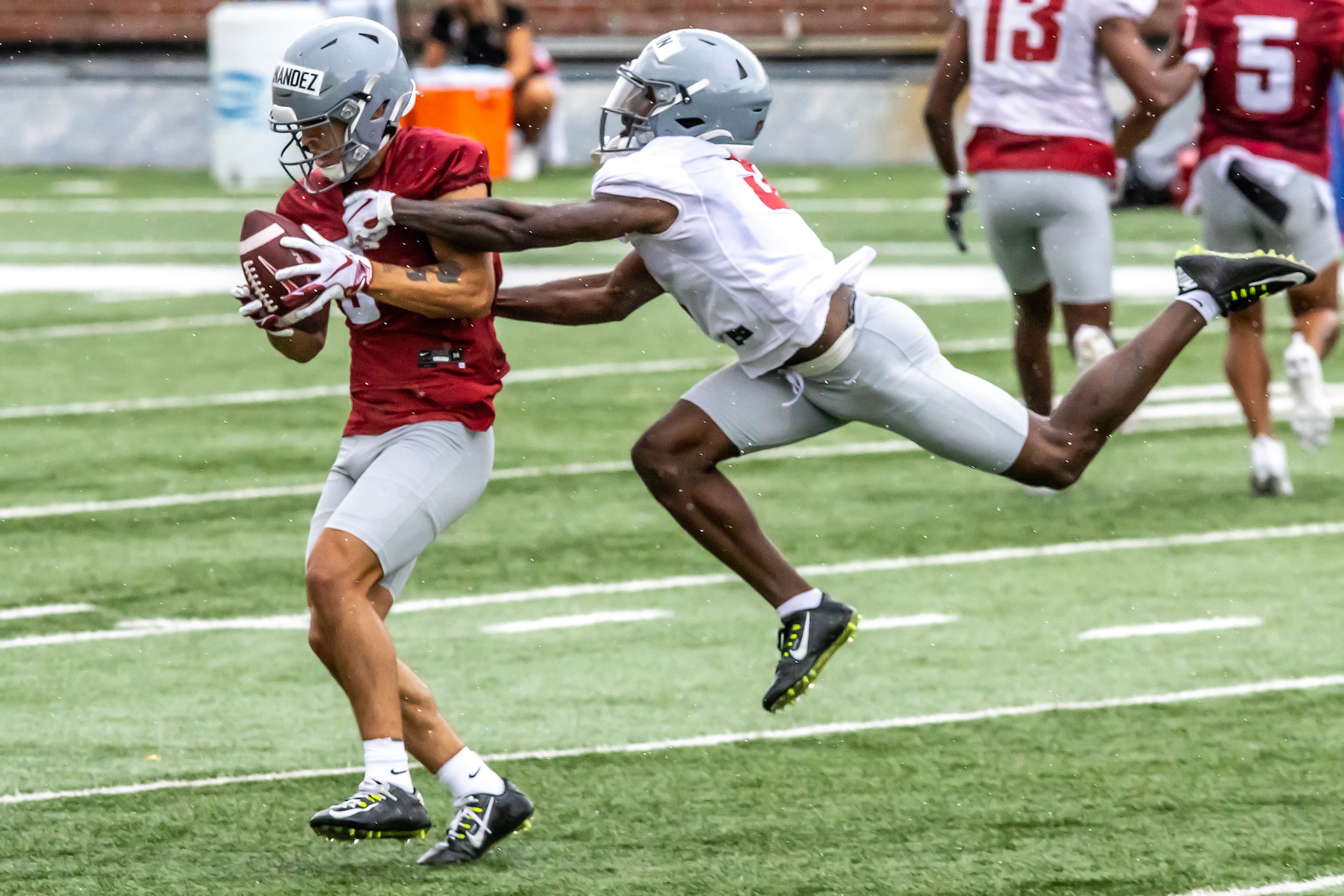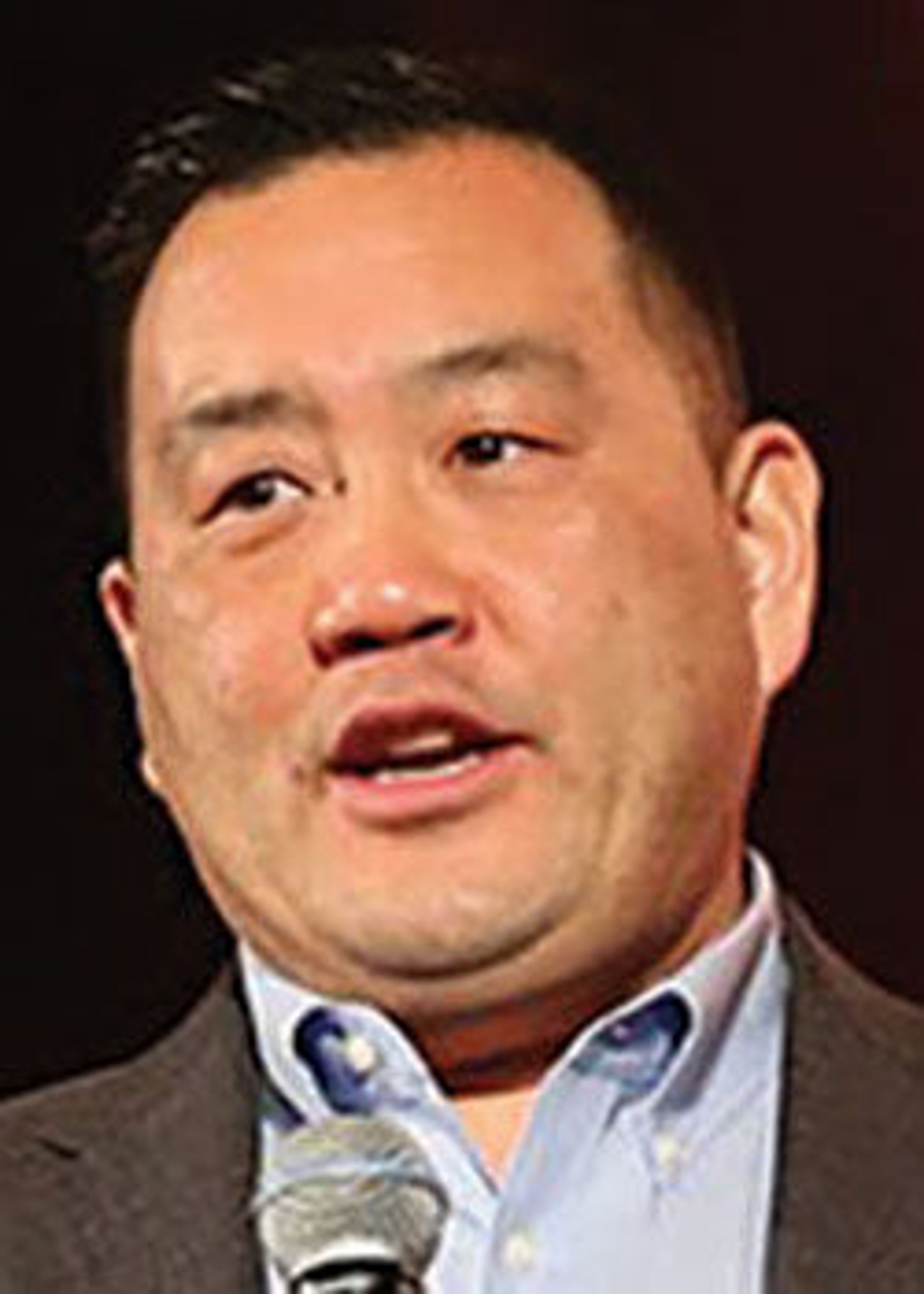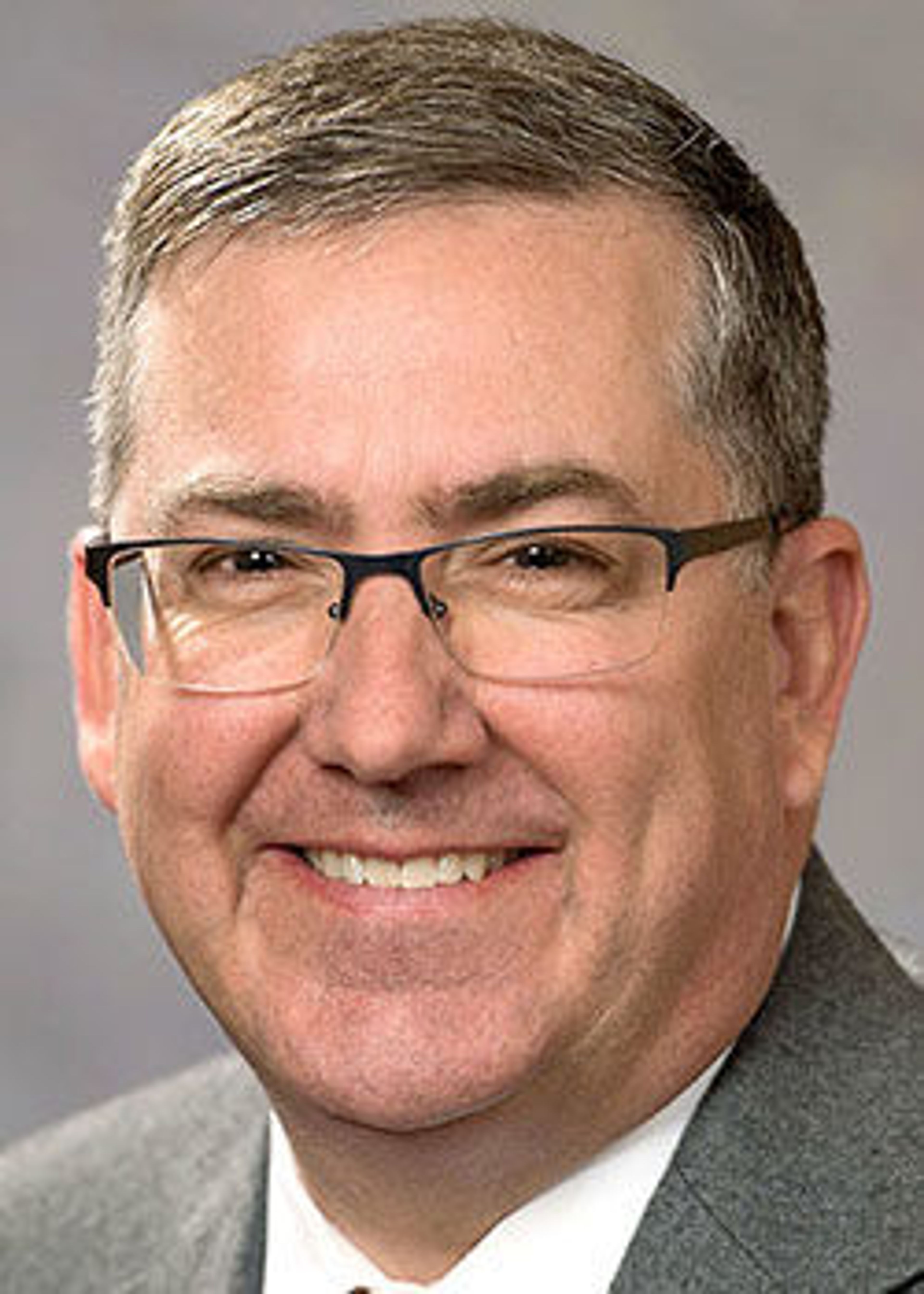WSU sifting through its options
Athletic director Pat Chun answers some, but not all, questions about Cougars’ unclear future with Pac-12 membership dwindling
The Washington State athletic department is in the midst of one of the most tumultuous periods in school history. The departures of Utah, Colorado, Arizona, Arizona State, Oregon, Washington, UCLA and USC from the Pac-12 has left the Cougars (along with the three remaining teams of Stanford, California and Oregon State) scrambling and looking for a home.
The destruction of the Pac-12 has also left WSU with questions: What conference will the school play for in 2024? What are the financial implications to the athletic department? What will teams look like a year from now? And what is the future of the Apple Cup?
Not all of these questions were answered, but some background and clarity was provided in a news conference by Washington State athletic director Pat Chun on Wednesday.
Future avenues for the Cougs
Chun’s news conference came on the same day that an ESPN article interviewing university President Kirk Schulz came out.
Schulz presented a couple of possible avenues for the Cougs in the interview. One was a rebuilding or retooling of the Pac-12 around the four remaining schools of Stanford, WSU, California and Oregon State, depending on what comes from the rumored discussions between Stanford, Cal and the Atlantic Coast Conference. Another was Washington State joining the Mountain West, which would be contingent on a media deal. And another option he mentioned was joining the American Athletic Conference.
Chun added some clarity to the comments, saying that several options are still being explored by the university. Chun also expounded that the previous standards the Cougars have had for their home conference have changed.
“In 2023, there are different criteria in what a meaningful conference needs to look like for Washington State — what conferences, as a whole, look like,” Chun said. “I’ve been very clear that we are being ripped apart in college football. Specifically, due to economic forces, due to market forces. Until there’s better leadership as a whole, this is going to continue. What happened to the four schools that remained in the Pac-12 is going to be a theme that you see over the course of the next decade unless we get better leadership in college football.”
Transparency in who remains
Schulz in his interview with ESPN said that Pac-12 Commissioner George Kliavkoff and the four remaining teams were blindsided by the decision of Oregon and Washington to leave the conference.
Because of the circumstances over the past few weeks, the four remaining Pac-12 schools have seemed to be transparent among each other with the understanding that each university is operating under what they believe to be their best interests.
“You have four colleagues that understand what the environment is currently at,” Chun said. “And (they’re) working to ensure that their institutions are positioned best in this environment.”
Schulz expanded in his interview with ESPN that Oregon State and Washington State are waiting for the result of the potential courtship between the ACC and Stanford and Cal to determine its next steps.
How this came to be
The dismantling of the Pac-12 was the result of several different circumstances. Reports have come out over the past couple of weeks that the lack of a satisfactory media rights deal was one, lack of faith in the decision-making of the conference heads was another. Chun said that there were many factors that resulted in the Pac-12 being in the spot it is now, a failure of leadership being one of them.
“I think it’s been well-documented that the last couple weeks was a culmination of years of failed leadership, failed vision (and) failed implementation,” Chun said. “It isn’t one singular thing that led to the destruction of the Pac-12 as we know it. It was a bunch of decisions and failed strategies that put us in this place. And it’s unfortunate because the ones who lose out on that are the student-athletes.”
Apple Cup’s future uncertain
When the initial shock wore down when all the teams left, a prevailing question was what the future of the Apple Cup game was beyond 2023.
The annual matchup between the Huskies and Cougars has rotated between Pullman and Seattle. Washington’s move to the Big Ten makes that format unlikely.
Chun said he wouldn’t speculate or hypothesize about the future of the Apple Cup until Washington State figures out its future and that the future of the game was lower on the priority list of the school. Chun did clarify that he didn’t see how not playing the Apple Cup in Pullman would be a good decision for the school.
Ending on an emphatic note
Chun ended the media conference with a firm statement on his belief in the future of Washington State that included something of a shot at unspecified schools.
“We’re going to continue to prove our critics wrong,” Chun said. “We’re going to continue to go forward and Washington State will continue to be a national brand — because unlike most of the schools in and around the country, we’ve actually earned it through the work of all our student athletes and all of our alums around the world.”
Other notes
Schulz and Chun had meetings with student athletes on Tuesday and said they would continue to meet with the athletes going forward. In the meeting on Tuesday, Chun reaffirmed the message that “Washington State is going to be OK.” Chun also said that, despite the status of the Pac-12, WSU continues to view itself as a Power Five school and Schulz in his interview with ESPN said the school will continue to invest in its athletics as a Power Five institution.
University of Washington athletic director Jen Cohen and President Ana Mari Cauce talked about relations with Washington State when UW released the statement on its move to the Big Ten. Chun said the conversation between the two schools was “brief.” He also said that the reality was that Washington’s decision negatively impacted Washington State, but that his job wasn’t to dwell on what happened.
In the ESPN article, Schulz talked about an estimated 40% decrease in athletic revenue, but will not cut any sports. Chun said they did not know or have a model at the moment of how this will affect jobs and salary within the athletic department.
Kowatsch can be contacted at 208-848-2268, tkowatsch@lmtribune.com or on Twitter @Teren_Kowatsch.










